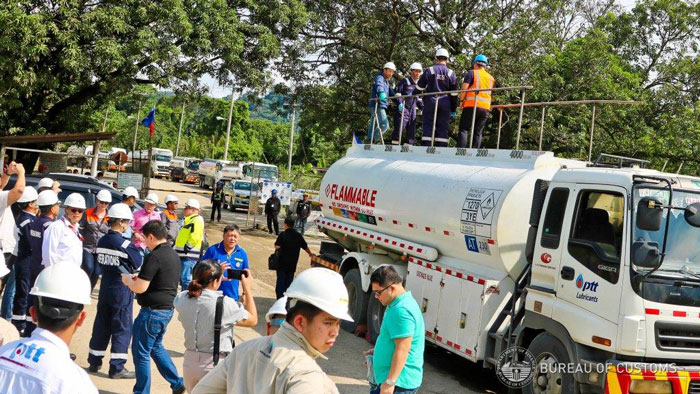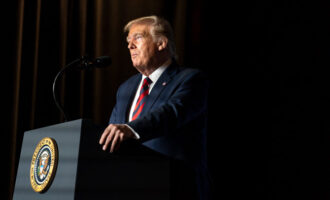
Philippines releases implementing rules of fuel marking program
The Philippine Bureau of Customs (BOC) has released the implementing rules of the fuel marking program, which mandates the marking and testing of petroleum products under the country’s Tax Reform for Acceleration and Inclusion (TRAIN) law.
Customs Memorandum Order (CMO) No. 43-2019, which was signed by Customs Commissioner Rey Leonardo Guerrero on 9 August 2019, implements Joint Circular (JC) No. 01-2019. CMO 43-2019, which took effect immediately, states that unless otherwise provided by law, petroleum products mandated to be marked include diesel fuel, gasoline, and kerosene. Further, it specifies that petroleum products imported in bulk only should be discharged at the Ports of Batangas, Limay, Subic, Davao, Cagayan de Oro, Cebu, Tacloban, and Iloilo. When recommended by the Project Implementation Office (PIO), the Customs commissioner may include other ports at a later date.
Joint Circular No. 01-2019 implements the Philippines’ fuel marking program—after taxes and duties have been paid—of refined, manufactured, or imported gasoline, diesel fuel and kerosene in the Philippines, including those withdrawn from Economic Free Zones, to be sold in the country.
Formally launched in February 2019, the program includes random field testing and confirmation of the fuel required to be marked as complying with the mandatory fuel marking requirement.
Marking of fuel products, whether imported or manufactured in the Philippines, becomes mandatory five years after the TRAIN law took effect on January 2018.
The Philippine Department of Finance (DOF), BOC, and Bureau of Internal Revenue (BIR) conducted the first live marking of petroleum products at the Seaoil Bulk Terminal in Mabini, Batangas, last month, officially launching the implementation of the fuel marking program.
A joint venture between Swiss-based SICPA SA and SGS Philippines were appointed the fuel marking provider earlier. The fuel marking provider shall develop and implement a comprehensive field testing program to ensure full risk-based coverage of the network of retail sites, fuel storage facilities, conveyances and warehouses in the country.
Field testing areas such as vessels, depots, warehouses, tank trucks, or other similar fuel-transporting vehicles will be supervised by the BOC. The PIO will be the central monitoring office, which will be under the Enforcement Group deputy commissioner of the BOC, to supervise, monitor, formulate and prepare rules regarding the program’s implementation.
A Fuel Marking One-Stop-Shop will be established at authorized ports to ensure taxes are paid according to the actual volume of fuel discharged, and that only tax-paid petroleum products are marked before release from customs-controlled premises.
All bulk petroleum products for fuel marking that arrive at the ports of discharge not specified under CMO 43-2019 may be discharged at the nominated port of discharge of the importer once the district collector at the port of discharge is notified.
The BOC will collect fuel marking fees simultaneous with the payment of internal revenue taxes on imported petroleum products. For this purpose, BOC’s Management Information System and Technology Group will assign a specific account code in the electronic-to-mobile system for the collection of the fuel marking fees.
Marked fuel products should not be stored or co-mingled with unmarked fuel products.
If a petroleum product is found without the official fuel marker or the required level of marker, the appropriate excise tax will be assessed and collected, including the appropriate penalties, without prejudice to confiscation and forfeiture, and the filing of appropriate criminal case.
Applicable offenses and penalties imposed under Title X of the National Internal Revenue Code and Title XIV of the Customs Modernization and Tariff Act will apply to violations under CMO 43-2019 and other related rules.









